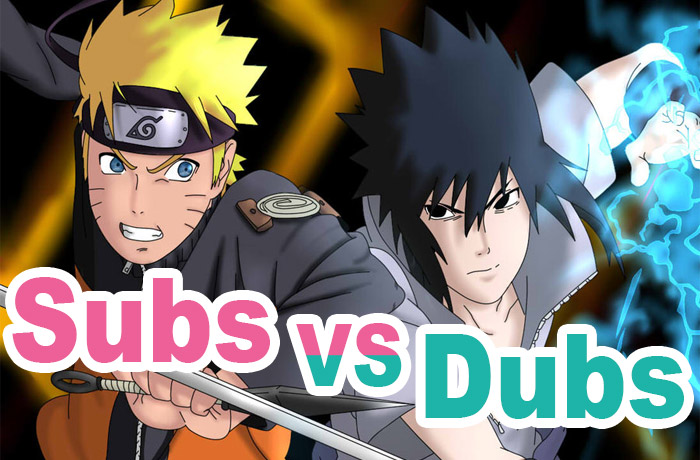Sub vs. dub debates are dumb
February 2, 2022
At first, I wasn’t sure if this type of article would garner any audience. When I was originally introduced to anime, it seemed like such an underground, “weird” thing. However, I increasingly see more and more people at our school sporting anime clothing, and I get the feeling that a decent amount of students watch or are at least familiar with anime (there are more secret weebs out there than you would think).
Usually, finding someone who’s an anime fan means that we already have something in common. That is, until the million-dollar question gets brought up. Subs vs. Dubs. Answer correctly and you have respectable taste. Answer incorrectly and none of your opinions are valid. I want to break down the reasoning behind each of these camps so that hopefully you can understand why someone might choose to watch in Japanese or English.
Pro-Sub
Many viewers choose to watch their anime subbed because they believe that the Japanese voice actors are better than the English ones. The popularity of anime in the west is relatively recent, so for a while, the quality of English dubs was iffy. There are many mid-2000’s anime (*cough* *cough* Ghost Stories) that have notoriously bad dubs. Even today, despite the dramatic improvement of the English dubbing industry, many still believe that the original Japanese voices sound better. In addition, sub viewers don’t have to deal with translation issues or awkward phrasing, whereas in English some of the dialogue can occasionally sound choppy. To give just one of many examples, “Kono Dio Da!” is a much more iconic line than “It was I, Dio”. Watching sub seems more logical for some because Japan is the setting for many animes, so naturally, the characters living there would speak Japanese. One additional thing I’ve heard is that in dialogue-heavy, story-intensive animes, some find it easier to follow along by reading the subtitles rather than trying to watch it dubbed and having to listen to everything the characters are saying.
Pro-Dub
When my friends sat me down to show me my first anime and asked, “Do you want to watch it in English or Japanese ”, I instinctively told them English. I didn’t know anything about the Sub vs. Dub thing at the time; I just assumed that I was supposed to watch the show in my native language. I feel like this is probably the experience of many other dub watchers as well. They speak English, so they watch in English. Other common arguments I’ve heard are that the sub voices are worse than the dub voices, not better. Japanese women voice many shonen protagonists, the most famous of which include Naruto, Luffy, and Goku. While these actresses are certainly talented, having a high-pitched voice come out of a big muscular dude like Goku is jarring to many. Also, the sub-voice actors often make Japanese “reaction noises”. These are a nuanced and unique part of the Japanese language, but due to the language barrier, they don’t make sense to an English viewer. The other biggest advantage to watching dub is that since you aren’t reading subtitles, you can watch anime in the background while doing something else. This allows people to burn through longer shows and filler arcs without wasting too much time.
At the end of the day, some subs are better than dubs, some dubs are better than subs, but most of the time, there isn’t a huge quality difference between the two. People get into the specifics of “so-and-so character sounds better in sub”, but at the end of the day, it’s less of an objective matter and more of what language you are used to watching your anime in. If you watch a show in sub and then you switch to dub (or vice versa), it’s naturally gonna sound strange at first. Personally, I have watched shows subbed and dubbed and enjoyed them all the same. There is no one “correct” way to enjoy anime, so spend less time arguing about the language and more time talking about the shows themselves.


